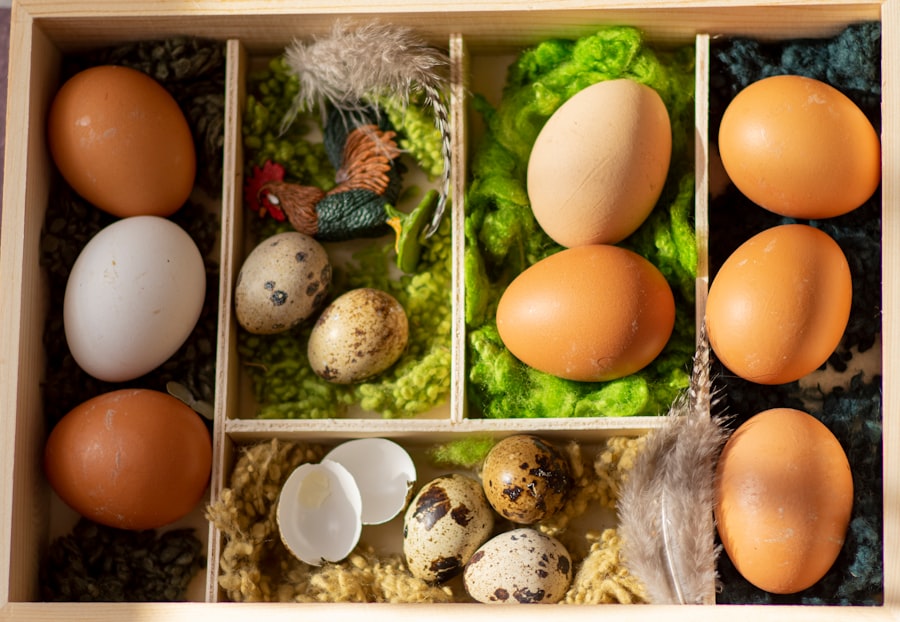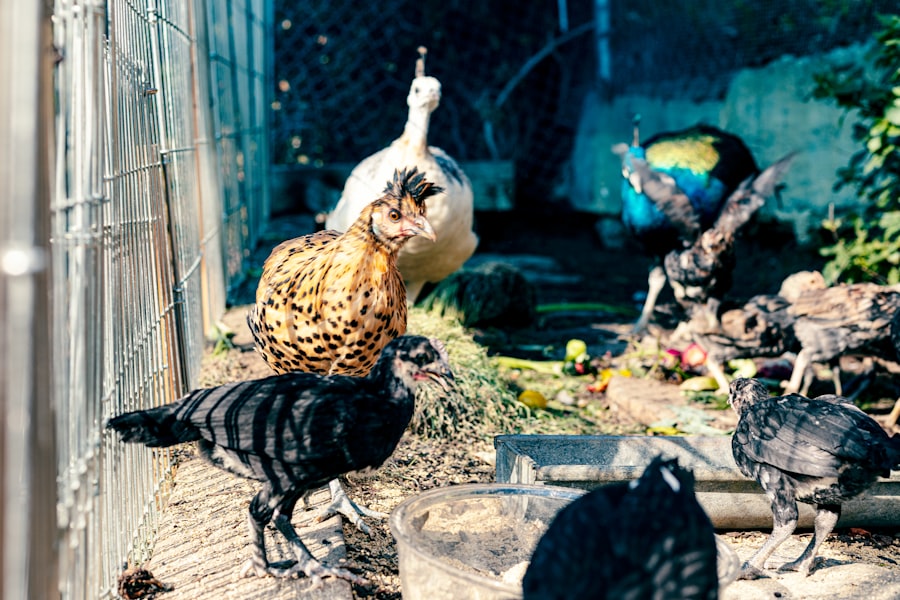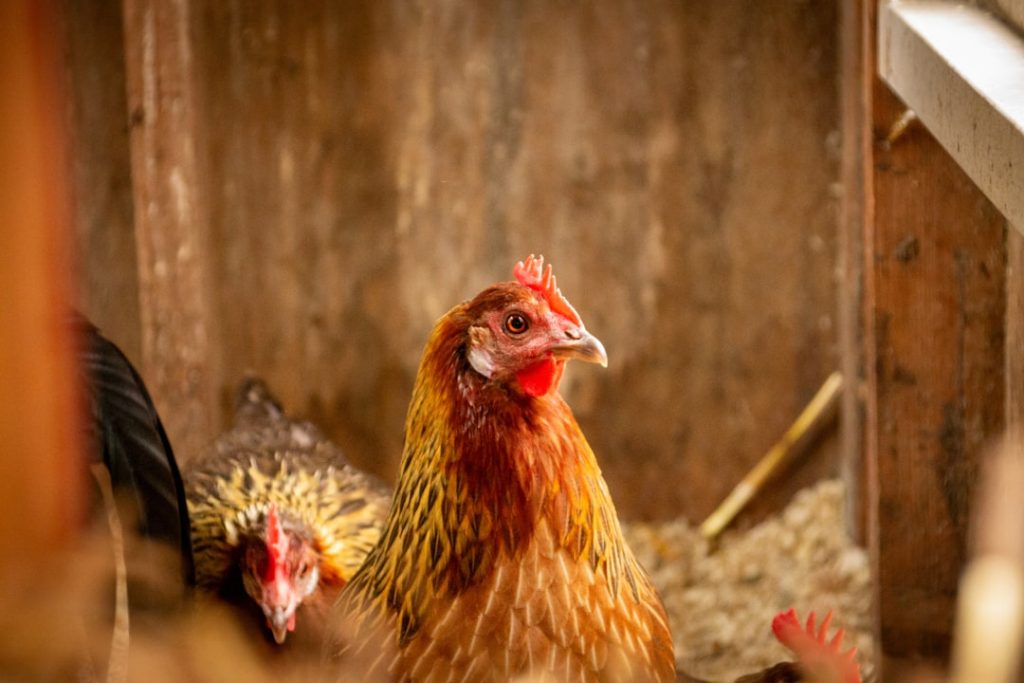Keeping chickens offers numerous benefits for individuals and families. One primary advantage is the consistent supply of fresh, organic eggs, which appeals to those prioritizing food quality. Additionally, raising broiler chickens can provide a source of meat.
Chickens contribute to natural pest control in yards and gardens by consuming insects, slugs, and other unwanted creatures. Their droppings serve as high-quality fertilizer, enriching soil for gardening purposes. These birds also offer entertainment value, as they possess unique personalities and behaviors that can be intriguing to observe.
Chickens are social animals and can form affectionate bonds with their caretakers. Furthermore, raising chickens can be an educational experience for children, teaching them about responsibility and food sources. However, chicken-keeping does present challenges.
Proper care, housing, and attention are essential for the birds’ well-being. With adequate knowledge and preparation, these obstacles can be overcome, and the benefits of keeping chickens often outweigh the required effort.
Table of Contents
- 1 Choosing the Right Breed for Your Needs
- 2 Setting Up a Coop and Run
- 3 Feeding and Caring for Your Chickens
- 4 Keeping Your Chickens Healthy
- 5 Dealing with Common Chicken Problems
- 6 Tips for Keeping Happy and Productive Hens
- 7 FAQs
- 7.1 What are some important factors to consider when choosing chickens?
- 7.2 What are some popular chicken breeds for beginners?
- 7.3 How can I ensure the health and well-being of my chickens?
- 7.4 What are some common challenges in keeping chickens?
- 7.5 How can I introduce new chickens to an existing flock?
Key Takeaways
- Keeping chickens can provide a sustainable source of fresh eggs and natural pest control for your garden.
- When choosing a breed, consider factors such as egg production, temperament, and climate adaptability.
- A well-designed coop and run will provide shelter, security, and space for your chickens to roam and forage.
- A balanced diet of commercial feed, kitchen scraps, and access to fresh water is essential for the health and well-being of your chickens.
- Regular health checks, proper hygiene, and predator-proofing are key to keeping your chickens healthy and safe.
Choosing the Right Breed for Your Needs
Egg or Meat Production?
The primary purpose of your chickens is a crucial consideration. Do you want your chickens primarily for egg production, meat production, or a combination of both? Different breeds excel in these areas, with some renowned for their egg-laying abilities and others bred specifically for their meat. If egg production is your top priority, breeds like the Rhode Island Red, Leghorn, or Australorp are known for their high egg output. On the other hand, if you’re interested in raising chickens for meat, breeds like the Cornish Cross or Freedom Ranger are popular choices due to their rapid growth and high meat yield.
Climate Considerations
The climate in which you live is another essential factor to consider when choosing a breed. Some breeds are better suited to cold climates, while others thrive in warmer environments. For example, the Plymouth Rock and Wyandotte breeds are known for their cold hardiness, making them ideal for colder regions. Conversely, Mediterranean breeds like the Leghorn are better suited to warmer climates.
Temperament Matters
The temperament of the breed is also crucial. Some breeds are known for being docile and friendly, making them great for families with children, while others may be more skittish or aggressive. It’s essential to choose a breed that fits well with your lifestyle and preferences.
In conclusion, when selecting a breed of chicken, it’s vital to consider factors such as egg or meat production, climate suitability, and temperament to ensure that you select the right breed for your specific needs.
Setting Up a Coop and Run

Setting up a proper coop and run is essential for the health and well-being of your chickens. The coop is where your chickens will sleep and lay their eggs, while the run is an outdoor area where they can roam and scratch for food. When setting up a coop and run, it’s important to consider factors such as space, ventilation, and predator protection.
The size of your coop and run will depend on the number of chickens you plan to keep. As a general rule of thumb, each chicken should have at least 2-3 square feet of space inside the coop and 8-10 square feet in the run. This will ensure that your chickens have enough room to move around comfortably and engage in natural behaviors such as dust bathing and scratching.
Proper ventilation is also crucial in a chicken coop to prevent the buildup of moisture and ammonia from chicken droppings. This can be achieved through windows, vents, or a combination of both. Good ventilation will help keep the air inside the coop fresh and reduce the risk of respiratory issues in your chickens.
Predator protection is another important consideration when setting up a coop and run. Predators such as raccoons, foxes, and birds of prey can pose a threat to your chickens. Ensure that your coop is secure with sturdy locks and hardware cloth to prevent predators from gaining access.
Additionally, consider burying wire mesh around the perimeter of the run to deter digging predators such as foxes. In summary, setting up a coop and run involves careful consideration of space, ventilation, and predator protection to ensure that your chickens have a safe and comfortable living environment.
Feeding and Caring for Your Chickens
Proper feeding and care are essential for the health and well-being of your chickens. A balanced diet is crucial for egg production, growth, and overall health. Chickens require a diet that is high in protein, vitamins, and minerals to thrive.
A good quality commercial feed is a convenient option for providing your chickens with essential nutrients. Look for feeds specifically formulated for laying hens if you are primarily interested in egg production. If you are raising broiler chickens for meat, there are feeds available that are higher in protein to support rapid growth.
In addition to commercial feed, chickens also benefit from access to fresh greens, fruits, and vegetables. These can be provided as treats or supplements to their regular diet. Chickens also require access to clean water at all times to stay hydrated and healthy.
Caring for your chickens also involves regular cleaning of their coop and run to maintain a clean and hygienic environment. This includes removing droppings, replacing bedding regularly, and keeping feeders and waterers clean. Regular health checks are also important to monitor the well-being of your flock.
Look out for signs of illness or injury such as lethargy, abnormal droppings, or changes in behavior. It’s important to address any health concerns promptly to prevent the spread of disease within your flock. In conclusion, proper feeding and care are essential for keeping your chickens healthy and happy.
A balanced diet, clean living environment, and regular health checks are key components of good chicken care.
Keeping Your Chickens Healthy
Keeping your chickens healthy is essential for their well-being and productivity. There are several key practices that can help maintain the health of your flock. Firstly, maintaining good hygiene in the coop and run is crucial for preventing disease and parasites.
Regularly clean out droppings, replace bedding, and keep feeders and waterers clean to reduce the risk of bacterial contamination. Another important aspect of keeping chickens healthy is providing them with access to fresh air and sunlight. Natural light helps regulate their internal clocks and supports healthy egg production.
Additionally, exposure to sunlight helps prevent vitamin D deficiency in chickens. Regular health checks are also important for monitoring the well-being of your flock. Look out for signs of illness or injury such as lethargy, abnormal droppings, or changes in behavior.
Address any health concerns promptly to prevent the spread of disease within your flock. Finally, providing your chickens with a balanced diet is essential for maintaining their health. Ensure that they have access to high-quality commercial feed as well as fresh greens, fruits, and vegetables as supplements.
In summary, maintaining good hygiene, providing access to fresh air and sunlight, regular health checks, and a balanced diet are key practices for keeping your chickens healthy.
Dealing with Common Chicken Problems

External Parasites: A Common Problem
One common problem that chickens may face is infestations of external parasites such as mites or lice. Regularly inspecting your flock for signs of parasites such as feather loss or irritated skin can help identify infestations early on. There are various treatments available, such as dusting powders or sprays, that can help eliminate parasites from your flock.
Respiratory Issues: Prevention is Key
Respiratory issues can also affect chickens, particularly in poorly ventilated or overcrowded coops. Symptoms may include coughing, sneezing, or nasal discharge. Improving ventilation in the coop and maintaining good hygiene can help prevent respiratory issues from occurring.
Injuries: Prompt Treatment is Crucial
Injuries such as cuts or scrapes can occur in chickens due to fights or accidents. It’s important to address injuries promptly by cleaning wounds and applying antiseptic ointment if necessary. Separating injured birds from the rest of the flock during recovery can also help prevent further injury or pecking.
By being aware of these common chicken problems, you can take steps to maintain the health and well-being of your flock.
Tips for Keeping Happy and Productive Hens
Keeping your hens happy and productive involves providing them with a comfortable living environment and meeting their physical and behavioral needs. Ensuring that your hens have enough space in their coop and run is essential for their well-being. Overcrowding can lead to stress and aggression among flock members.
Providing ample space allows hens to engage in natural behaviors such as dust bathing and scratching. Offering enrichment activities such as perches or hanging treats can help keep hens entertained and reduce boredom. This can also help prevent undesirable behaviors such as feather pecking or aggression within the flock.
Maintaining a consistent routine for feeding and care can also help keep hens happy and productive. Chickens thrive on routine and may become stressed if there are sudden changes in their environment or care. Finally, providing access to a clean nesting area with comfortable bedding is essential for encouraging hens to lay eggs regularly.
Ensuring that nesting boxes are dark and secluded can help hens feel secure when laying eggs. In conclusion, providing a comfortable living environment, offering enrichment activities, maintaining a consistent routine for feeding and care, and providing a clean nesting area are key tips for keeping hens happy and productive.
If you’re interested in learning more about the breeding habits of quail, you should check out this article on Poultry Wizard. It provides valuable information on whether quails sit on their eggs and how to best care for them during the breeding process. It’s a great resource for anyone looking to expand their knowledge on raising poultry.
FAQs
What are some important factors to consider when choosing chickens?
When choosing chickens, it’s important to consider the climate and environment in which they will be kept, the purpose for keeping them (e.g. eggs, meat, pets), the amount of space available, and the level of care and attention you are able to provide.
What are some popular chicken breeds for beginners?
Popular chicken breeds for beginners include the Rhode Island Red, Plymouth Rock, Sussex, and Orpington. These breeds are known for being hardy, docile, and good egg layers.
How can I ensure the health and well-being of my chickens?
To ensure the health and well-being of your chickens, provide them with a balanced diet, clean water, a safe and comfortable coop, regular health check-ups, and protection from predators. It’s also important to handle them gently and provide opportunities for exercise.
What are some common challenges in keeping chickens?
Common challenges in keeping chickens include predators, diseases, maintaining cleanliness in the coop, and dealing with aggressive or broody behavior. It’s important to be prepared for these challenges and have a plan in place to address them.
How can I introduce new chickens to an existing flock?
When introducing new chickens to an existing flock, it’s important to do so gradually and in a neutral territory. Keep a close eye on the interactions between the new and existing chickens, and be prepared to separate them if necessary. Gradually integrating them into the flock will help reduce aggression and establish a pecking order.
Meet Walter, the feathered-friend fanatic of Florida! Nestled in the sunshine state, Walter struts through life with his feathered companions, clucking his way to happiness. With a coop that’s fancier than a five-star hotel, he’s the Don Juan of the chicken world. When he’s not teaching his hens to do the cha-cha, you’ll find him in a heated debate with his prized rooster, Sir Clucks-a-Lot. Walter’s poultry passion is no yolk; he’s the sunny-side-up guy you never knew you needed in your flock of friends!







